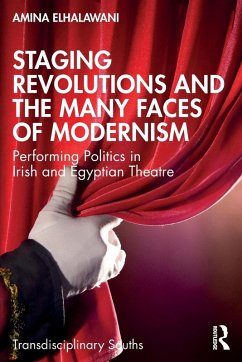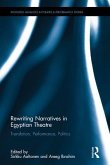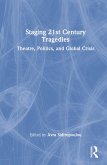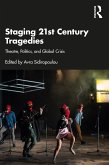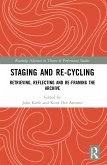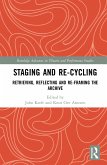The book explores how theatre, with its performative capacity, has the power to engage with and affect the politics of its day. It sets the stage for the reader to discover the revolutionary traditions of Egyptian and Irish theatre, very distinct in their histories and cultures, and understand their enduring relevance in today's world. The volume takes Ireland as a case study of the interplay between cultural nationalism and politically engaged theatre and compares it to the role of the theatre in Egypt during its Golden era in the 1960s.
Through a selection of Egyptian plays by Tawfiq al-Hakim, Mikhail Roman, Yusuf Idris, and Salah Abdul-Saboor, alongside Irish plays by Brian Friel, Frank McGuinness, Christina Reid, and Samuel Beckett, it maps the political aesthetics of unsteady times and seemingly disparate places to reflect on the dynamics of revolt as a staged act in and of itself. Further, the book examines how playwrights from both nations have engaged with theatre as a medium, focusing on how their contemplations, hesitations, frustrations, and protest have been translated onto the stage in their various plays, and comprehends the transformative role the theatre has always played in politics in shaping history across time and space.
Bridging together discussions on transnational modernisms with nuanced cultural histories of protest, this critical work will be of great interest to scholars and researchers of literary studies, identity politics, cultural studies, theatre and performance studies, and political studies.
Through a selection of Egyptian plays by Tawfiq al-Hakim, Mikhail Roman, Yusuf Idris, and Salah Abdul-Saboor, alongside Irish plays by Brian Friel, Frank McGuinness, Christina Reid, and Samuel Beckett, it maps the political aesthetics of unsteady times and seemingly disparate places to reflect on the dynamics of revolt as a staged act in and of itself. Further, the book examines how playwrights from both nations have engaged with theatre as a medium, focusing on how their contemplations, hesitations, frustrations, and protest have been translated onto the stage in their various plays, and comprehends the transformative role the theatre has always played in politics in shaping history across time and space.
Bridging together discussions on transnational modernisms with nuanced cultural histories of protest, this critical work will be of great interest to scholars and researchers of literary studies, identity politics, cultural studies, theatre and performance studies, and political studies.

